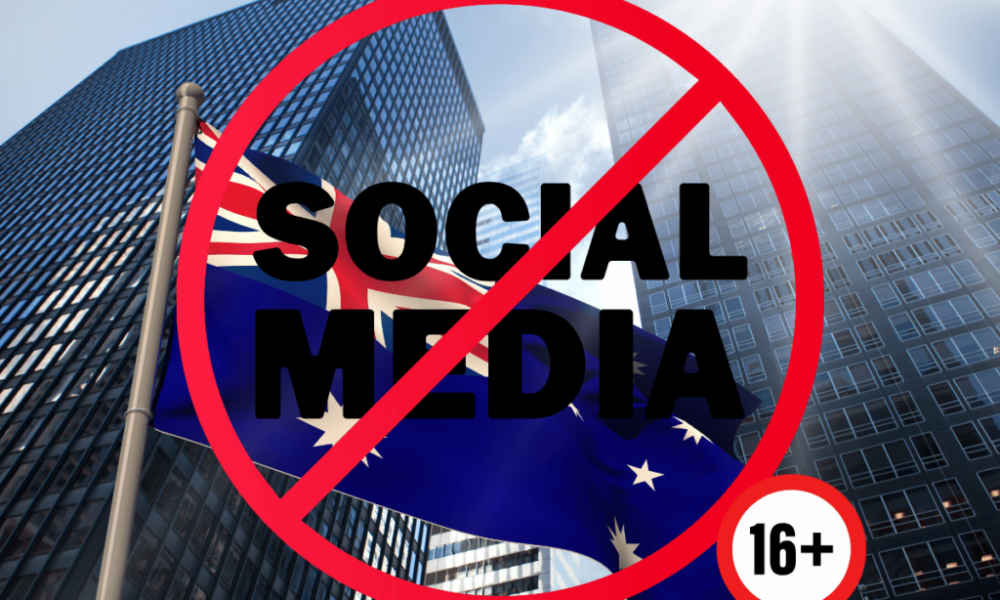Tech
Australia Bans Social Media For Children Under 16, Should India Follow Suit?
Australia's House Of Representatives passes bill banning children under 16 from accessing social media platforms like Facebook, Instagram, Snapchat and TikTok.

The global conversation around children’s digital exposure is reaching a critical point. Countries around the world are waking up to the profound impact of unrestricted internet access on young minds. And finally acting upon these concerns, Australia has boldly stepped forward as the first country with proposed legislation to ban social media for children under 16. It’s a move that signals a growing recognition of the potential psychological and developmental risks associated with early and unsupervised digital engagement.
And it will now officially become law.
— Anthony Albanese (@AlboMP) November 28, 2024
We're doing everything we can to keep our kids safe. pic.twitter.com/1Eiy8pv7av
The Australian Senate committee’s recent backing of this bill represents a nuanced approach to digital protection. It’s not a simplistic blanket ban but a carefully considered strategy that requires social media platforms to implement robust age verification methods. Companies could face substantial fines up to A$49.5 million for systemic breaches, signaling the seriousness of protecting young minds.
What makes this bill particularly interesting is its approach to age verification. Social media platforms won’t be allowed to demand personal identification documents like passports. Instead, the government of Australia plans to trial innovative verification systems that might incorporate biometrics or alternative identification methods. It’s a delicate balance between protection and privacy—a tightrope walk that many countries are watching closely.
While many support the bill, there are many against it as well. Especially, and understandably so; the social media platform biggies themselves.
🚨Breaking: @elonmusk has just weighed in on Australia's proposed social media ban saying it's a back door to control internet access for ALL Australians with the Government threatening to fine platforms up to $50M.🚨 pic.twitter.com/a21yCFVVYl
— Stand up 🇦🇺 (@Standup_global) November 21, 2024
A recent survey by LocalCircles reveals a deeply concerning landscape in India
The urgency of this conversation becomes crystal clear when we examine the digital consumption patterns in India. According to the LocalCircles survey, half of urban Indian parents report their children are addicted to social media, online gaming, and streaming platforms. The numbers are staggering: children between 9 and 17 are spending between three to six hours daily on digital platforms, with some exceeding six hours of screen time.
Excessive digital consumption is more than a parental concern—it’s a public health issue. The medical community increasingly recognizes the profound impact of unregulated digital exposure on children’s psychological development.
Social media restrictions across the globe
Platforms like YouTube, Prime Video, Netflix, Hotstar, Instagram, WhatsApp, Discord, and Snapchat have become virtual playgrounds for young minds. But these playgrounds come with hidden risks—increased aggression, diminished attention spans, and potential mental health challenges that are only beginning to be understood.
The global response to this digital dilemma varies. Norway is considering raising the minimum social media age to 15. Germany allows social media access for teenagers between 13 and 16 only with parental consent. The European Union has implemented strict data protection rules for children under 16. China has gone a step further, implementing guidelines that limit smartphone usage for minors to just one or two hours daily.
In India, the conversation is gaining momentum. Two-thirds of surveyed parents believe there should be a data protection law mandating parental consent for children under 18 joining online platforms. The Karnataka High Court has even suggested considering an age limit of 21 for social media access, highlighting the growing concern at judicial levels.
But is a complete social media ban practical, or even possible at this point?
However, the path forward is not straightforward. While protection sounds ideal, completely banning or severely restricting social media could lead to unintended consequences. There’s a real risk of social isolation, technological alienation, and potential psychological backlash. Children might feel marginalized or find more secretive ways to access these platforms. And honestly, if there’s anyone who knows how to work around restrictions, it’s an angsty teenager.
The challenge lies in finding a balanced approach that protects without completely restricting. Digital literacy, open communication, and gradual exposure seem more sustainable than absolute prohibition. We need to educate children about responsible digital consumption, teach them to navigate online spaces critically, and provide them with the tools to understand the digital ecosystem.
Australia’s move is more than a policy—it’s a global conversation starter about childhood in the digital age. For India, this isn’t about mimicking another country’s approach, but about developing a nuanced strategy that understands our unique societal context.
The digital world isn’t going away. Our collective challenge is to transform it from a potential threat to a space of learning, connection, and responsible engagement. As parents, educators, and policymakers, we stand at a critical juncture. The choices we make today will shape the digital experiences of future generations.
The conversation about children’s digital well-being is no longer optional—it’s essential. Australia has thrown down the gauntlet. The question now is: How will India, and other countries respond?
